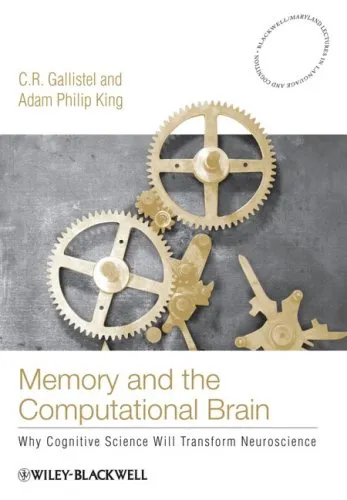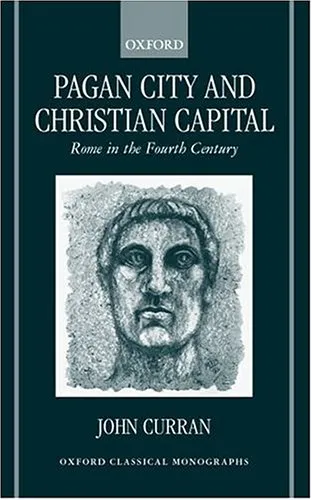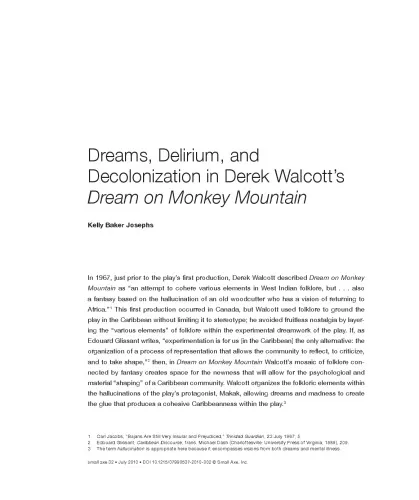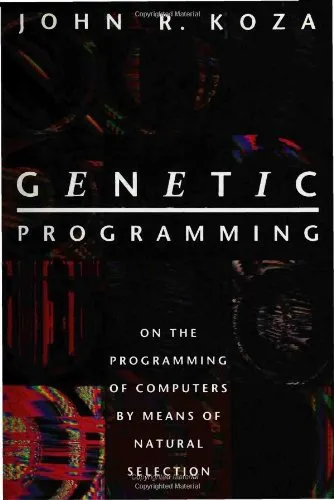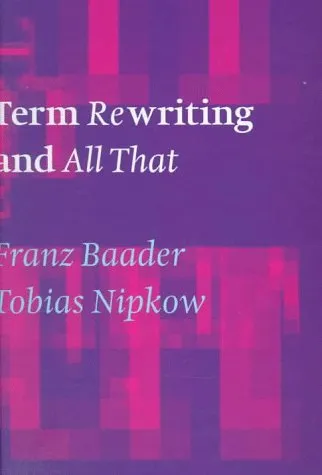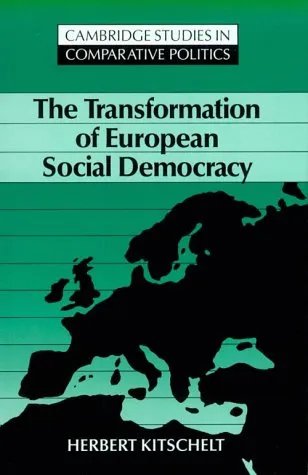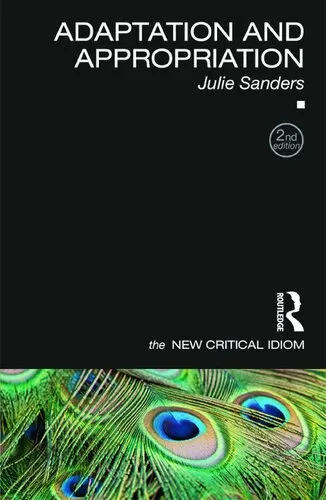Memory and the computational brain: why cognitive science will transform neuroscience
4.0
بر اساس نظر کاربران

شما میتونید سوالاتتون در باره کتاب رو از هوش مصنوعیش بعد از ورود بپرسید
هر دانلود یا پرسش از هوش مصنوعی 2 امتیاز لازم دارد، برای بدست آوردن امتیاز رایگان، به صفحه ی راهنمای امتیازات سر بزنید و یک سری کار ارزشمند انجام بدینکتاب های مرتبط:
معرفی کتاب: حافظه و مغز محاسباتی: چرا علوم شناختی عصبشناسی را متحول خواهد کرد
کتاب 'Memory and the Computational Brain: Why Cognitive Science Will Transform Neuroscience' توسط کریستین ار. گالیستل و آدام فیلیپ کینگ، اثر برجستهای است در تلاقی علوم شناختی و علوم عصبی. این کتاب به تحلیل عمیق و جذابی از این مسئله میپردازد که چگونه فهم محاسباتی از ذهن میتواند درک ما از مغز و عملکردهای آن را دگرگون کند.
خلاصهای جامع از کتاب
کتاب به فرض اساسی میپردازد که مغز عملیاتی مشابه با یک کامپیوتر انجام میدهد و حافظه را به عنوان یک سیستم محاسباتی مورد بررسی قرار میدهد. نویسندگان بر این باورند که مدلهای محاسباتی، ابزاری ضروری در فهم عمیقتر عصبشناسی و شناخت ساختاری و عملکرد مغز هستند. آنها پیشنهاد میکنند که تکنیکهای مدلسازی cognitive science میتواند در تحلیل حافظه و اطلاعات در مغز، نقش کلیدی ایفا کند.
گالیستل و کینگ به وضوح روندهای فعلی عصبشناسی را نقد میکنند و استدلال میکنند که روشهای متداول نمیتوانند به درک حقیقی از ساختار و فرآیندهای حافظه منجر شوند. آنها معتقدند که برای درک چگونگی کارکردهای مغز، باید به روشهای تخصصی و مدلهای محاسباتی توجه بیشتری شود.
نکات کلیدی
- ارتباط بین محاسبات و عملکردهای شناختی مغز
- روشهای نوین در مدلسازی حافظه به عنوان یک فرآیند محاسباتی
- نقد روشهای رایج و ارائه جایگزینهای جدید
- تاکید بر نقش دادههای کمی در تحلیل عصبی
جملات معروف از کتاب
"حافظه، همانند یک محاسبهگر عمل میکند؛ با نظمی دقیق و الگویی برنامهریزی شده."
"فهم ما از مغز بدون بهرهگیری از دادههای محاسباتی و علمی، سطحی باقی خواهد ماند."
اهمیت این کتاب
این کتاب برای هرکسی که علاقهمند به درک عمیقتری از نحوه عملکرد مغز و روشهای جدید در عصبشناسی است، بسیار حیاتی است. با ارائه دیدگاهی نوین در مورد نقش محاسبات در حافظه و شناخت، نویسندگان راه را برای تحقیقات آینده فراهم میکنند. این اثر تفکری نو به ما عرضه میدارد تا روابط جدیدی بین علوم مختلف شناختی و عصبی بر قرار کنیم.
تاثیر کتاب بر حوزههای مختلف تحقیقاتی و علمی انکارناپذیر است، زیرا به جای تمرکز بر تحلیلهای کیفی، بر دادههای کمی و مدلسازی تخصصی تاکید دارد. این کتاب میتواند بهعنوان یک مرجع اساسی برای محققان و دانشجویانی که به دنبال راههای جدید درک مغز هستند، محسوب شود.
Welcome to an exploration of the intricate connections between memory, cognition, and the brain through the enlightening lens of cognitive science in the book "Memory and the Computational Brain: Why Cognitive Science Will Transform Neuroscience" by C. R. Gallistel and Adam Philip King. This book provides a groundbreaking discourse that promises to reshape our understanding of how the brain operates and stores information, presenting compelling arguments and sophisticated theories that are bound to revolutionize contemporary neuroscience.
Detailed Summary of the Book
In "Memory and the Computational Brain," Gallistel and King challenge traditional perspectives on how memory and brain function are conceptualized in neuroscience. They propose that the brain should be viewed not just as a biological organ but as an intricate computational network capable of extraordinary feats. The book delves into the concept of information as it relates to brain processes, emphasizing that cognitive processes — especially memory — can be best understood through computational theories.
The authors argue that the physical structure of the brain should be appreciated as a series of codes and algorithms that embody cognitive science's fundamental principles. They explore the trends in cognitive neuroscience, focusing on how computational models offer more accurate and profound insights into how the brain encodes, stores, and retrieves information. By comparing neurons to the components of a computer, the book illustrates how information processing theories can shed new light on neural substrates and cognitive functions.
Key Takeaways
- The brain is essentially a computational device that processes information, challenging traditional biological perspectives.
- Memory is not simply stored in the brain but is dynamically encoded and retrieved through complex neural codes.
- Cognitive science is pivotal in advancing neuroscience, offering transformative insights into brain-behavior relationships.
- Understanding the brain requires an interdisciplinary approach, merging neuroscience, psychology, computer science, and cognitive science.
Famous Quotes from the Book
"The limits of our perceptions are bound by the constraints of our computational abilities."
"Memory, often thought immutable, is in fact an agile ballet of processes influenced by algorithmic underpinnings."
Why This Book Matters
"Memory and the Computational Brain" underlines the importance of cognitive science in the current and future landscape of neuroscience. It encourages researchers, scholars, and academics to rethink and question traditional approaches to understanding the brain. This book stands as a pivotal resource for anyone keen on bridging the gap between cognitive theories and neurobiological science.
By grounding neuroscience in computational models, Gallistel and King foster a deeper comprehension of cognitive phenomena, offering substantial evidence that could ultimately lead to breakthroughs in mental health, artificial intelligence, and neural engineering. For students, researchers, and enthusiasts of cognitive science and neuroscience, this book is crucial in navigating and deciphering the complexity of brain functions and memory.
دانلود رایگان مستقیم
شما میتونید سوالاتتون در باره کتاب رو از هوش مصنوعیش بعد از ورود بپرسید
دسترسی به کتابها از طریق پلتفرمهای قانونی و کتابخانههای عمومی نه تنها از حقوق نویسندگان و ناشران حمایت میکند، بلکه به پایداری فرهنگ کتابخوانی نیز کمک میرساند. پیش از دانلود، لحظهای به بررسی این گزینهها فکر کنید.
این کتاب رو در پلتفرم های دیگه ببینید
WorldCat به شما کمک میکنه تا کتاب ها رو در کتابخانه های سراسر دنیا پیدا کنید
امتیازها، نظرات تخصصی و صحبت ها درباره کتاب را در Goodreads ببینید
کتابهای کمیاب یا دست دوم را در AbeBooks پیدا کنید و بخرید
1445
بازدید4.0
امتیاز0
نظر98%
رضایتنظرات:
4.0
بر اساس 0 نظر کاربران
Questions & Answers
Ask questions about this book or help others by answering
No questions yet. Be the first to ask!
